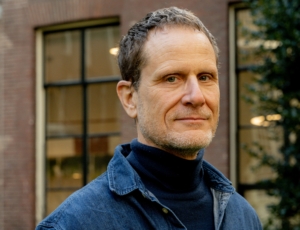How did you become a Historian?
Slowly. I started out in a multidisciplinary programme. I did my first degree in Chinese Studies at the University of Leuven in Belgium. As I was finishing my BA thesis on the history of the genre of Chinese local histories that have been written from early medieval times through the present, I decided that I wanted to continue in this field, although I was not exactly sure what I wanted to do. At first, I thought it would be worth pursuing research on intellectual and cultural change in the sixteenth and seventeenth centuries. This took me to the United States, where I did my graduate degree at Harvard University, eventually writing an intellectual history of the Chinese civil service examinations. After I graduated I stayed in the US for a little longer. I did a postdoc at the University of California at Berkeley and worked at the Harvard-Yenching Library for a while. After two years, mainly for visa reasons, I decided to get an academic job as an assistant professor in Chinese history, because I could not get a visa as a manager of a library. I taught in the History Department at the University of Tennessee for five years. Then I moved to the University of Oxford, where I worked in Chinese Studies again, but at the same time started collaborating with medieval and early modern historians working on other parts of the world. In 2013, I moved to my current position: Professor of Chinese History at Leiden University.
Why Chinese History?
At first mainly because it offered a window into a society and a place that were changing at a fast pace from the late 1970s onwards and that had been through major upheavals in the decades before I went to university. Later also because studying a history I knew next to nothing about and that was substantially different and somewhat distant from European history, also provided new ways of looking at European history. I have been interested in discovering why Chinese states have been able to sustain themselves over time. If we compare the history of Chinese empires to European empires, it is striking the last seven hundred years or so there were few periods in which multiple kingdoms reigned over the Chinese territories. This was not the case in earlier Chinese history, even though we are often told that it has been so for at least 5000 years or so. That this was not the case is not just something that we observe; one of the most famous Chinese historians, Sima Guang, also wrote that looking back at Chinese history before the tenth century, the Chinese territories had been divided most of the time. In order to explain the longterm history of political organization in global history, we need to pay attention to Chinese history, and I try to contribute by exploring changes in political culture and communication.
What are you currently working on?
I am currently going back to political thought and am writing a history of political advice literature in East Asia, looking at the question of how the relationships between emperor, officials, and the people were understood and enacted in political advice literature and administrative handbooks. I am trying to involve political theory a bit more as well. If one were critical of my earlier work, one could say it was heavy on the cultural history of how people have historically read current affairs but light on political thought – the conceptual history of governance did not receive enough attention. With a team of co-translators I just finished a translation of The Essentials of Governance of the Reign of Constancy Revealed, a text that became a model in the ‘mirrors to princes’ genre as it developed in East Asia. This work had not yet been published in a full English translation. I was invited to help include more East Asian works in the well-known Cambridge University Press series “Texts in the History of Political Thought”, edited by Quentin Skinner. It is partially as a result of this that I dove deeper into the history of such texts that were initially compiled to teach young aristocrats how to govern a political community. These texts are not about political theory as we know it. They are intended to show listeners and readers how to behave and act in positions of leadership or how to speak to those in power. I will look not only at how the genre emerged in medieval times on both sides of the Eurasian continent but also at what happens when mirrors fall into the hands of all readers of all walks of life over time and in different cultural settings. The story goes up to the present time, since new editions and adaptations of medieval mirrors are still being published in China, Japan, Korea, and Southeast Asia.
What are your future plans?
I will proceed with trying to discover why these kinds of texts, mirrors to princes, emerge in China. I will also proceed with my article on Citizenship in China, which is something I thought I would never write about. The standard story is that there is no citizenship in China, but one can look at citizenship in very different ways; either as something that is defined by legal contracts or as something that you are because you act like it. I do not think I could have done this if I had not been here at NIAS.



